By: Clyde N.S Ramalaine
– Politics, not law, at the centre of this indictment –
Former speaker of the House of Representatives in the USA, Tipp O’Neill, is most associated with the adage; ‘all politics is local’. That local US politics blazoned our global television screens this week. The drama of America’s 45th President Donald J. Trump’s arrest, the first in US presidential history, was billed as a moment of unique significance. We were drawn to it by the idea that because of its historical precedence, it was new and, therefore, monumental. The way it was run by a paid and lusty biased media, of which CNN remains the main drum majorette, could not be ignored. For weeks we were told how Trump would finally be booked and led up to the 15th floor Manhattan Court to face a judge and sit at the defence desk in a criminal court. Donald J. Trump, the 45th US president, would make history again by being booked and arraigned on what was advanced as criminal charges.
We all saw and lived through the moment from his Florida borne flight to the motorcade that delivered him to the courthouse. From what we were told, the State would present the until then sealed indictment, and it was expected to be a devastating blow for Trump, his followers, and his political ambition to get back into the Oval Office.
All that was left to do was to hear the actual indictment. The State presented its indictment in what the legal fraternity in the USA refers to as a ‘bare-bones’ indictment. It tersely states the claim of the State of its accusation of the purported perpetrator now arrested. The indictment makes up a 16-pager straightforward English document which had as a backup some accompanying narrative constituting an umwelt or background.
We were told it contains 34 counts, which, if you hear it the first time, suggests 34 individual crimes or incidents of criminality. However, this could be one crime that defines 34 incidents. Meaning counts can stand as separate charges or be understood as a principal crime with varied manifestations of incidents.
It was almost a sense of de javu since South Africa has its own version of such, with the NPA’s purported 783 charges against former president Jacob Zuma. On 16 March 2018, just over a month after Zuma resigned from the presidency, NDPP then Shaun Abrahams announced that Zuma would face prosecution on 16 criminal charges – 12 charges of fraud, two of corruption, and one each of racketeering and money laundering. Thanks to a legal friend, I had printed out and read the 16-pager, very easy-reading bedtime piece within minutes since the indictment was unsealed.
Let me then make my two disclaimers. Firstly, I am not a jurist, meaning I cannot advance a sustainable legal argument informed by tested knowledge or expertise in law, particularly US law or its justice systems. Secondly, I am not a fan of Donald J Trump; I could never be since my previous writings on Trump communicate my ideological and social challenges with a narcissistic, misogynistic, and racist Trump. Hence my musing adopts a political context analysis of an indictment that unfortunately cannot be divorced from the political space, which New York District Attorney Alvin Bragg inadvertently confirmed in his address after the arraignment of Trump. As such, Bragg was categorically clear about the other crimes the indictment intimates plays out in the sphere of politics detailing a 2016 election in campaign and outcome.

I, therefore, have read the indictment against Donald J. Trump, and while I am no jurist, I am engaging in the political context, which is my field of interest and space of daily engagement. I will do three things in this musing. Firstly, I will sketch my challenges with the indictment at its face value. Secondly, I will engage the political context measurable in whom Alvin Bragg and Donald Trump represent in US society at this juncture to postulate why I hold that the indictment against Trump was from the start political and remains political notwithstanding Bragg’s claim of new but not provided evidence. At the hand of socio-critical analysis theory, I attempt unpacking them in race, party, class, ambition, ego, and future personal hopes; I will lastly turn to make the case of why a Trump presidency could mean a more sane America in its foreign policy praxis.
My challenges with this indictment are herewith captured.
- The State’s case, while perpetually referring …to defraud and intent to commit another crime…in all 34 counts leveled, not once cites the actual purported ‘other crime’ it so vociferously propagates. Meaning every one of the counts in virtually +80% except for dates, places, and people mentioned constitutes a fully-fledge repetition of the aforementioned.
- The State’s star witness, former Trump attorney and now convicted felon Michael Cohen is cited at least 11 times in name, whereas he is referred to in other count too. Suggesting he is the State’s key witness. Would Michael Cohen, who proved an untrustworthy witness caving in in his case, ever stand cross-examination under the proverbial legal bulldogs Trump hired? It is given that Cohen has an axe to grind with his former client, Donald Trump, and hopes to redeem himself by getting Trump nailed. It should have been that at the time of Cohen’s cases, Trump as an accomplice be charged if the case was to stand in equitable pursuit of justice. I momentarily reflect on the South African version of Shabir Shaick and the ongoing Jacob Zuma cases. What is the political deal the State has with Cohen to get Trump?
- If the crime is hush money – does hush money translate to a crime? From the comments of most jurists, even ardent Trump haters, hush money is a misdemeanour and not necessarily a felony. It would have to be elevated to fit to the drapings of a crime.
- Bragg’s hurdle was first to acknowledge the subject of the misdemeanour, which constitutes the essence of the State’s case; he then attempted to escalate the misdemeanour into a felony that would justify the case. To do this, he needed to show that the misdemeanour had a motive or intent to commit further crimes, translating to his corroborating felony claims. So searching through the 16-pager, I wanted to hear the calculating of Bragg’s mind in a legal sense to articulate in clarity of thought the actual felony. I was disappointed when Bragg chose to stay silent on the intimated felony when he repetitiously referred to it. We had to wait for his presser to hear that he relates to elections threat and, to an even lesser extent, the plausible tax infringement felony.
- What does District Attorney mean by the crime as pointing to a threat to elections? This question vacillates on two axes. One is the subject of electoral laws, be they federal, state, or national. The cardinal question was any of the electoral laws broken in the 2016 candidacy of Trump? The record would show that there is no evidence for such a claim. Secondly, the issue of elections and the threat of their influence and outcome necessitates a political conversation since electoral laws were kept intact. District Attorney Alvin Bragg’s case unveils it is existent in political, not legal, frames. It leaves the political context as the only fundamental determinant for Bragg’s case.
- If District Attorney Alvin Bragg and his team remotely had what he calls the propagated ‘other crime,’ he would have stated it in the purported 34 counts. It is here that the reality of what constitutes the State’s case comes in entanglement as wrangled in political theatrics.
- Since this information is already known, you would recall Bragg’s predecessor attempted but found no substantial evidence to prosecute. It is Bragg’s averment that his decision to prosecute is borne out by new evidence, yet such is not known as yet. What then made Bragg convinced that he would be able to make a case to stand?
No congruent and uniform legal theory exists on making payments to someone in what is colloquially understood to mean hush money. One would have thought that the 2008 case of North Carolina Senator John Edwards, a fair contender against Barack Obama for the Democratic candidacy, could have helped Bragg and his team. You would recall that the Edwards scandal broke after he fathered a child with someone of his campaign staff. Edwards’ wife was terminally ill with advanced cancer, and he did not want her to learn of him fathering a child since the lady threatened to go public with the information. Edwards’s argument, presented to the jury, contended he had a reasonable explanation for paying the lady threatening to make the information public. Edwards’ clarification, therefore, translates to an exculpatory reason that the jury bought.
Bragg thus would have known that intent as his anchor tenant for his case is a more cumbersome case since it fundamentally warrants proving that the perpetrator willfully and knowingly broke the law. This type of case is not easily established, as the Senator John Edwards case evidenced. Without belabouring the point, in the case of Trump, we must remember that Cohen acted as his attorney, meaning Trump relied on legal counsel from Cohen and is likely to have been led by Cohen in his legal choices. Now if Trump was a beneficiary of legal advice from his attorney and acted on such with the resultant effect of a violation of law, the burden of wilful and knowing consciousness cannot stand since that is already shifted to Cohen.
On the subject of payments effected by Trump to Cohen. From what we know, Cohen paid the two women involved. He would then invoice Trump for a payment which would have included the actual payments and his legal costs should these have arisen. Therefore the subject of an invoice and its details of description is and remains that which originates from the one who made the payments, who is also the one who provided the legal advice and ultimately generated a payable invoice to be settled by his client. The produced evidence of Trump’s signature on 4-5 issued cheques details can also be argued as signatures he appended n between travel without knowing the whole or particular information. It is usual for cheques to be pre-signed by people in Trump’s position. If the State wants to prove intent with these, it must explain why it does not indict the Trump Organisation CFO or anyone else who signed the other cheques in other instances. The issue for me here is consistency; if the State has no interest in going after the other signatories, it cannot have a unique or special interest to hold Trump as a signatory up to prove its intent measurable in its willful and knowing notion.
Let me then return to the substantial political context in suggesting what vibrates as the actual reality informing this case.
We must ask who Alvin Bragg is and who Donald Trump is. What do these represent in their respective and schizophrenic blue and red shades of American party politics? These are both politicians with ambition; in this case, irrespective of outcomes, they hope to harvest the desired intentions of their known ambitions. Should Bragg succeed, his place in Democratic Party is solidified as the one who slew the proverbial goliath, and thus he may be rewarded handsomely.
What does this case say of the ever-pervasive, if not immortalised, black-and-white binaries that continue to hold the US carceral in defining American society’s social and economic strata? Who and what do Bragg and Trump represent in notions pseudo or fundamental of liberal and conservative values and meaning as antithetical signposts of the 21st century USA? What do Bragg and Trump stand for in explanation of the ideological parenthesis of the praxis of traditional and discursive American politics? What are the epistemological differences aesthetically or authentically between Trump and Bragg, both elites of American society?
Politician District Attorney Alvin Bragg had just wet himself publicly because he wanted to wear the big drolls. Alvin Bragg legitimized Trump’s candidacy and threatened to go down in history as a candidate to have enabled Trump’s second term. I am afraid I must conclude Bragg, as the hired or volunteered gun, is on a witch hunt as a Democrat politician out to deal with Trump from past hurt to ensure they annihilate his new candidacy. You will also forgive Donald Trump and his growing fans for claiming this is a witch hunt to stop Trump’s new candidacy.
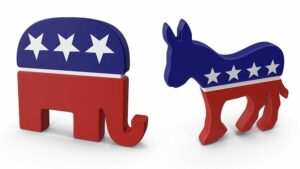
It is difficult not to conclude that this indictment and case is politically engineered, politically propelled, and politically sustained; it will never stand any legal scrutiny. It would then translate that this indictment will be dismissed and go nowhere in any sane justice-driven court. Like the failed Democrats’ impeachment attempts. Don’t let your hate for Trump blind you to thinking he deserves any and every injustice.
To my American friends and family, Donald J. Trump is not your enemy; his candidacy, presidency, and subsequent life merely unveiled who America is at a fundamental level. Trump is America, at least as many non-Americans know the US. Secondly, for us outside the USA, Trump, unlike all your former, more recent presidents from Carter to Biden, spells no threat to world peace. Contrary to his erratic, uncouth, and unconventional candour, he has, for his term in office, been very sane on the US in an international setting.
If Trump was this erratic and intoxicated, why does Biden not revisit Trump’s bold decision to move the US embassy to Jerusalem, not Tel Aviv? Biden will not because no Democrat or Republican before Trump had the temerity to do this. I am not raising this because I agree with the decision; I am presenting it to show that his foreign diplomacy on Israel is what America stands for. He took China on with trade as his anchor tenant. His foreign diplomacy position on China in keeping it accountable for a fair trade practice stands. His challenge to keep Germany responsible for its carbon economy guilt is no challenge. His take on Africa, while in words insulting, spelled no real threat to the continent. Juxtapose this to the exceptionalism of Biden’s foreign diplomacy handle and the impact of such with Russia – Ukraine. I hope to pen Trump’s foreign diplomacy versus Biden’s to make the case that Trump led a much more stable foreign space when Biden is at the centre of precarious and turbulent diplomacy that has America at risk on too many fronts.
What you can’t deny as a record of history – as far back as from Jimmy Carter to Joe Biden, except for Donald Trump the USA details warmonger presidents who, if justice defined the world, all need to be locked up for hideous, violent and inhumane crimes committed against humanity wherever the USA in self endowed exceptionalism wanted to dictate it’s democracy on others.
The days of the USA ruling in Roman emperorship are over. In the last three weeks, global politics have altered, and the favor has swung away from this dominance of a USA presence. The US probably needs Trump to remain less untrustworthy in international spaces. It possibly needs Trump to stop the insaneness of the armed conflict, correctly explained in the Geneva Conventions of 1949 that details a Ukrainian nightmare. It does not take rocket science to contend that Biden’s leadership is taking the US down a rabbit hole since we all know Russia is destroying Ukraine, and the facade of the bravery of Ukrainians is a fading narrative from embedded journalism. Ukraine will end up as an ash heap, and Biden and his foolishness must be blamed for this Nato led foolishness that costs lives by hundreds of thousands.
Let me conclude with the advanced claim of the indictment’s historical precedence. Those who pontificate on Trump registering the first president of the US to be charged in a criminal court of law are not custodians of any universal-centred-franchised morality of doing right. Suppose that was the case for everyone from Richard Nixon to Joe Biden. I need not jog your selective memory about Jimmy Carter, Bush senior, William Jefferson Clinton, George W. Bush, and Barack Hussein Obama.
If what I call a universal-centred-franchised morality was the yardstick, all those mentioned above should have been indicated. In that case, these should all have been arrested, arraigned, and languished in prison for undeniable crimes committed on local and foreign soil. So let us not be deceived by the sophism of the case’s precedence, America, in holding its presidents accountable for their decisions, is not proved any accurate yardstick of morality.
This is another reason why this case of Trump is and remains political. One in which both Blue and Red party members hope to stop Trump from becoming the next US president. Bragg risked all and left himself embarrassed since he had to grope at his 24 years of experience for his defense in what remains a political press statement, just not the legal justification for this indictment. So yes, Tipp O’Neill and others were correct; all politics is local. Trump’s indictment and arraignment was a local matter, local in the context of blue and red politics with looming elections earmarked for 2024. However, it’s also international; the US has never been this vulnerable and distrusted, which has ramifications for its own ongoing stability since it is not invincible as it purports.
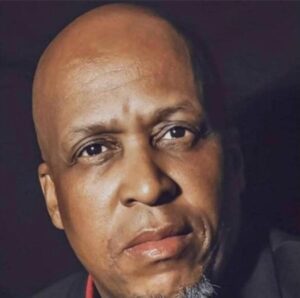
Political Analyst, Theologian, Lifelong Social and Economic Justice Activist, Author, Published Poet and Freelance Writer.


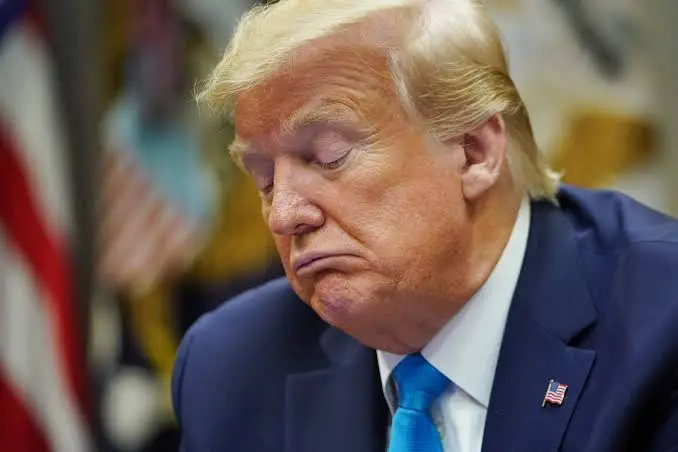
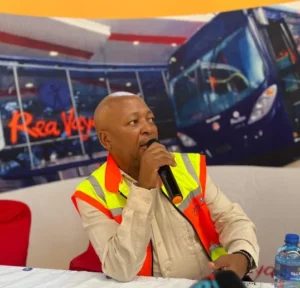
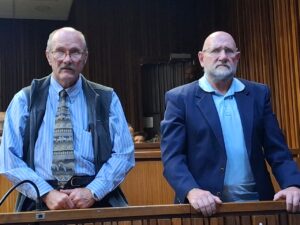



Trump a racist? Really?